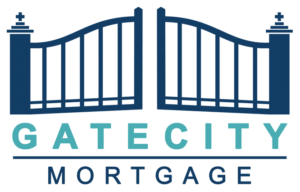
by Melinda | Apr 22, 2024 | Mortgage Basics
Applying for a mortgage can be overwhelming, but being prepared can make the process smoother. This checklist covers essential documents you need, such as your property details, income verification, sources of funds, and debt obligations. Providing accurate and complete information promptly can help speed up your application. From sales contracts and pay stubs to tax returns and bank statements, having everything ready will ensure you meet the requirements and move forward with confidence. Remember, every situation is unique, so additional documentation might be necessary.

by Melinda | Apr 22, 2024 | Mortgage Basics
The Fair Credit Reporting Act (FCRA) ensures that consumer reporting agencies provide accurate and complete information to businesses evaluating your credit application. Key rights under the FCRA include receiving a copy of your credit report, knowing who accessed your report, and obtaining a free report if your application is denied due to CRA information. You can dispute inaccuracies in your report, and if not resolved, add a summary explanation. Understanding these rights helps protect your credit reputation and ensures fair credit evaluations.

by Melinda | Apr 22, 2024 | Mortgage Basics
Closing costs are essential payments needed to finalize a home loan, separate from your down payment. These costs cover various services, including inspections, title insurance, and appraisal fees. Additionally, expenses such as attorney fees, moving costs, and prepaid interest may arise. Understanding and preparing for these up-front expenses can help ensure a smoother home-buying process. By knowing what to expect, you can plan your finances better and avoid surprises at closing.

by Melinda | Apr 23, 2024 | Mortgage Basics
Understanding the appraisal process is crucial when buying or selling a home. An appraisal estimates a property’s fair market value and is typically required by lenders to ensure the loan amount doesn’t exceed the property’s worth. Appraisers use three methods to determine value: Cost Approach, Sales Comparison Approach, and Income Approach. While the mortgage company owns the appraisal, it can be transferred to another lender. Additionally, sellers set the property’s market value, often with the help of a real estate agent performing a Comparative Market Analysis. Assisting the appraiser by providing relevant details and documents can ensure a thorough assessment.

by Melinda | Apr 23, 2024 | Mortgage Basics
Private Mortgage Insurance (PMI) is often required by lenders when the down payment on a conventional mortgage is less than 20% of the home’s purchase price. PMI protects the lender in case of borrower default. Borrowers can pay PMI in various ways, including upfront premiums, higher monthly payments, or financing a lump-sum premium into the loan. PMI can help borrowers qualify for larger loans, though the costs vary based on the insurer and specific plan. Understanding how PMI works, how it’s paid, and the cancellation rules under the Homeowners Protection Act of 1998 is crucial for homebuyers.

by Melinda | Apr 23, 2024 | Mortgage Basics
Refinancing your mortgage can be a smart financial move to lower monthly payments, reduce interest rates, and improve your debt-to-income ratio. Understand when to refinance, whether it’s beneficial if you plan to move soon, and the costs involved. Consider factors like quality of service and cost transparency when choosing a lender. Gate City Mortgage Company offers exceptional personalized service, guiding you through the refinancing process with confidence. Learn how to decide if paying points to lower your interest rate is worth it and the importance of locking in your loan rate.

by Melinda | Apr 22, 2024 | Loan Programs
A fixed-rate mortgage is a popular loan type where monthly principal and interest payments remain constant throughout the loan’s term, typically ranging from 10 to 30 years. These loans can be paid off early without penalties. Payments are stable, although they may vary slightly if an impound account is used to cover property taxes and insurance. This type of mortgage ensures predictability and financial stability, making it an attractive option for many homebuyers.

by Melinda | Apr 22, 2024 | Loan Programs
Adjustable Rate Mortgages (ARMs) have interest rates that can change during the loan term, starting with a fixed rate for an initial period. ARMs offer lower initial rates compared to fixed-rate mortgages, making it easier to afford a more expensive home. Typically amortized over 30 years, ARMs combine a margin and an index to determine interest rates. These rates adjust annually, but caps limit the amount of adjustment, providing some protection against drastic hikes. Understanding how ARMs work can help you decide if they suit your financial situation.

by Melinda | Apr 22, 2024 | Loan Programs
Interest-only mortgages allow borrowers to pay only the interest for a set period, resulting in lower initial payments. These loans can be beneficial for those with fluctuating incomes or needing short-term savings, but they come with higher long-term costs and the risk of increased payments after the interest-only period.

by Melinda | Apr 22, 2024 | Loan Programs
Graduated Payment Mortgages (GPMs) offer a unique loan structure where payments start low and increase annually for a set period, typically 5 to 10 years, before stabilizing for the remaining term. This setup helps borrowers qualify for loans despite high interest rates by initially lowering payments. However, the risk includes negative amortization, where unpaid interest is added to the loan principal, increasing the overall balance. Understanding GPMs, planning for increased payments, and ensuring income growth can help manage these mortgages effectively.

by Melinda | Apr 22, 2024 | Loan Programs
FHA home loans, backed by the Federal Housing Administration, offer a path to homeownership for those who might not meet conventional mortgage criteria. These loans are available for single-family and multifamily homes, providing low down payments, reasonable credit requirements, and flexible income guidelines. Ideal for first-time buyers, FHA loans make buying a home more accessible by reducing the risk for lenders.

by Melinda | Apr 22, 2024 | Loan Programs
VA (Veteran’s Administration) Home Loans offer veterans the opportunity to secure federally guaranteed home loans with no down payment, lower interest rates, reduced closing costs, and no prepayment penalties. Established in 1944 through the GI Bill, these loans are available nationwide and can be reused under certain conditions. Eligibility extends to veterans who served during specific wartime or peacetime periods, as well as certain spouses. VA loans can be used to purchase various types of homes, including single-family homes, townhouses, and new constructions. While there are some disadvantages, such as longer processing times and seller hesitance, the benefits often outweigh these drawbacks for eligible veterans.

by Melinda | Apr 22, 2024 | Loan Programs
USDA loans offer low-interest, zero down payment mortgages designed for low-income Americans who may not qualify for traditional loans. These loans require the property to be in designated rural or suburban areas, making homeownership accessible and affordable for those who meet specific income and credit requirements.

by Melinda | Apr 22, 2024 | Loan Programs
Jumbo loans are designed for financing properties that exceed the conforming loan limits set by the Federal Housing Finance Agency (FHFA), which is $548,250 in most counties. These non-conforming conventional mortgages are considered riskier for lenders because they cannot be guaranteed by Fannie Mae or Freddie Mac. Jumbo loans offer flexible terms, including fixed and adjustable rates, but come with stricter qualification requirements such as higher credit scores and larger down payments. While they allow for higher borrowing limits, they may also have slightly higher interest rates.














